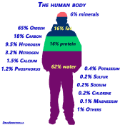Recognizing Substance Abuse
Recognizing substance abuse in one’s relative requires some basic understanding of addiction. It helps to know a bit about the various drugs, alcohol, and medications people abuse. Awareness of some side effects of these toxic substances is equally useful.
What follows might seem sarcastic, but people don’t suddenly wake up one morning and say to themselves, “today I think I’ll become a substance abuser.” Nor will you find a person growing up saying: “my goal is to be a drug addict or alcoholic.” It also does not remove or deny the existence of NAS (Neonatal Abstinence Syndrome). It does, however, mean that in over 90% of abusers, it all comes down to a choice in dealing with something.

A Quick View on Drugs
The first thing to know is that there are a limited number of classifications of drugs. In fact, one can classify them into six basic categories:
- alcohol,
- opioids,
- benzodiazepines,
- cannabinoids,
- barbiturates, and
- hallucinogens.
This list covers everything available on the black market, over-the-counter, and prescription markets. Each of the above substance classifications will carry a list of side effects. But you will not find the side effects label written on illicit drugs or alcohol. For the last decade or so, pharmaceutical companies have been required to include the side effects of medications. Anyone can search these classifications and read up on their side effects.
Basic Effects and Behaviour of Substance Abuse
It is pretty clear what happens when someone has had too much to drink. But you want to know whether the person’s drinking has become a problem for them or those around them. Yet some alcoholics are quite able to hide their drinking. For that purpose, recognizing substance abuse is important. The key things to look for are things like:
- Using mouth wash or breath mints in an unusual manner or quantity (often to cover the sent of alcohol)
- Denial of drinking or sense of offence when asked or faced with comments about it.
- Temper burst when requested to seek help
- Finding empty bottles in odd places
- Etc.
These are just some examples of alcohol use taking on a higher degree of abuse.
All other drugs will have their particular side effects. But one can safely observe the following with pretty much each one:
- Sluggish behaviour
- Blank and a “not there” attitude
- Avoidance of people and serious conversations
- Drop in responsibilities
- Inability to deal with daily affairs
- Excessive absence at work and social or family affairs (by giving excuses not to be there)
- Dilated pupils, dry mouth, continuous sniffling (seen with cocaine users)
- Agitated behaviour
- And much more
Recognizing substance abuse is one thing and quite another to doing something effective about it. As a parent, relative, or friend, you may sometimes feel you cannot do anything. That is not true. You have the power to make a difference in someone’s life.

Safeguarding
Sobriety
Doing Something About Substance Abuse
The first thing you can do is learn about drugs and their effect on the person. Doing so permits you to address the issue with an understanding. See this website for more information: www.drugfreeworld.org
The next action you can take is to start a conversation with the abuser on a gradient. It is done best by finding out what is of value to the person by using these substances. How does it help them? What is desirable about it for the person? You then follow this with how it brings sorrow or how it is damaging their life. You are, in fact, getting the person to look at both sides of the issue. It permits the person to evaluate the plus & minus of misusing their substance of choice. These simple actions will sooner or later make the person accept that things are not going that well overall. You can read more on this in this article.
Finding a Solution
It may also show that the person has no solution to stop. That is where you can have them speak with a referral & consultation counsellor who has experience in the field of substance abuse.
Here, the referral counsellor presents solutions to the person who agrees to seek professional assistance. Our addiction referral counsellors can be that person. You would need to call our toll-free number below.

Five Key Reasons
for Relapse
Series on
Treatment

When Actions for Substance Abuse Fail
When recognizing substance abuse, a well-planned intervention comes into play. An intervention, when done right, is a game changer in most cases. Families can follow the advice in the “more on intervention” (on the side of this paragraph) and have success. But sometimes, the help of a professional interventionist is necessary.

Marc Bernard
Author,
Addiction Field Specialist,
Referral & Consultation Counsellor, Ethics in Practice – NAADAC
Reviewed by Susan. Chubbs Drug and Alcohol Treatment Specialist


